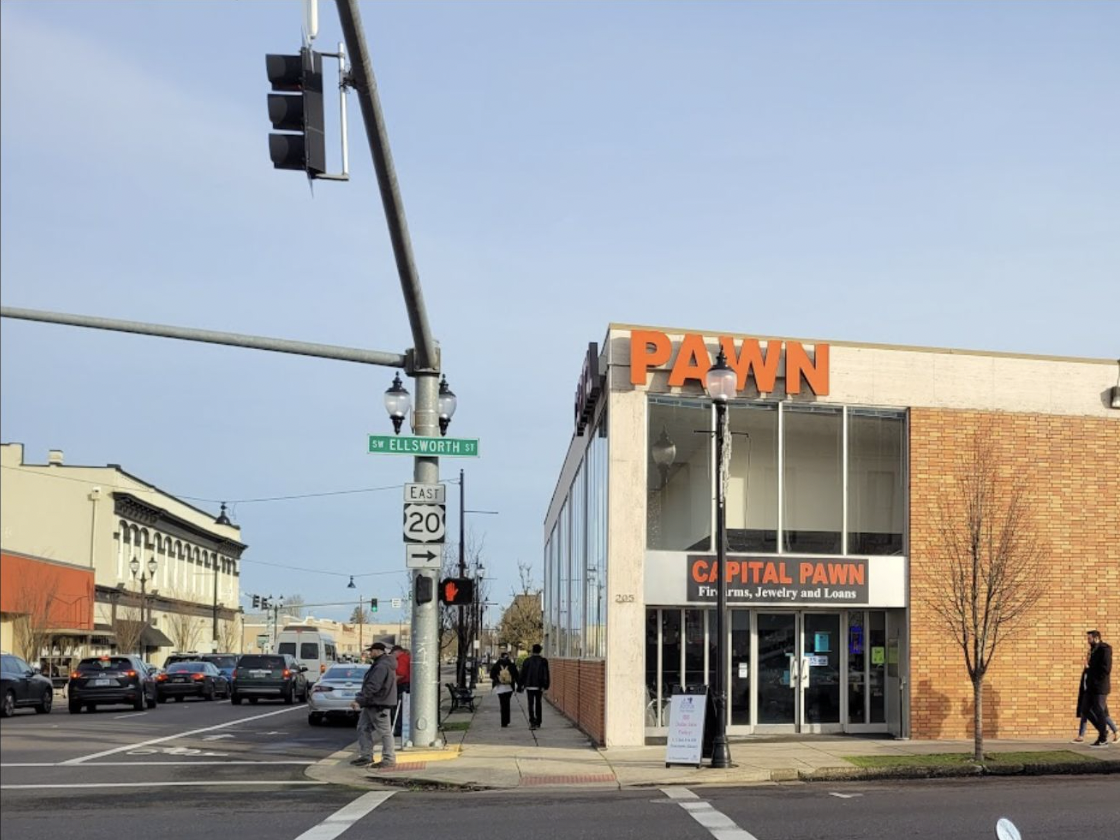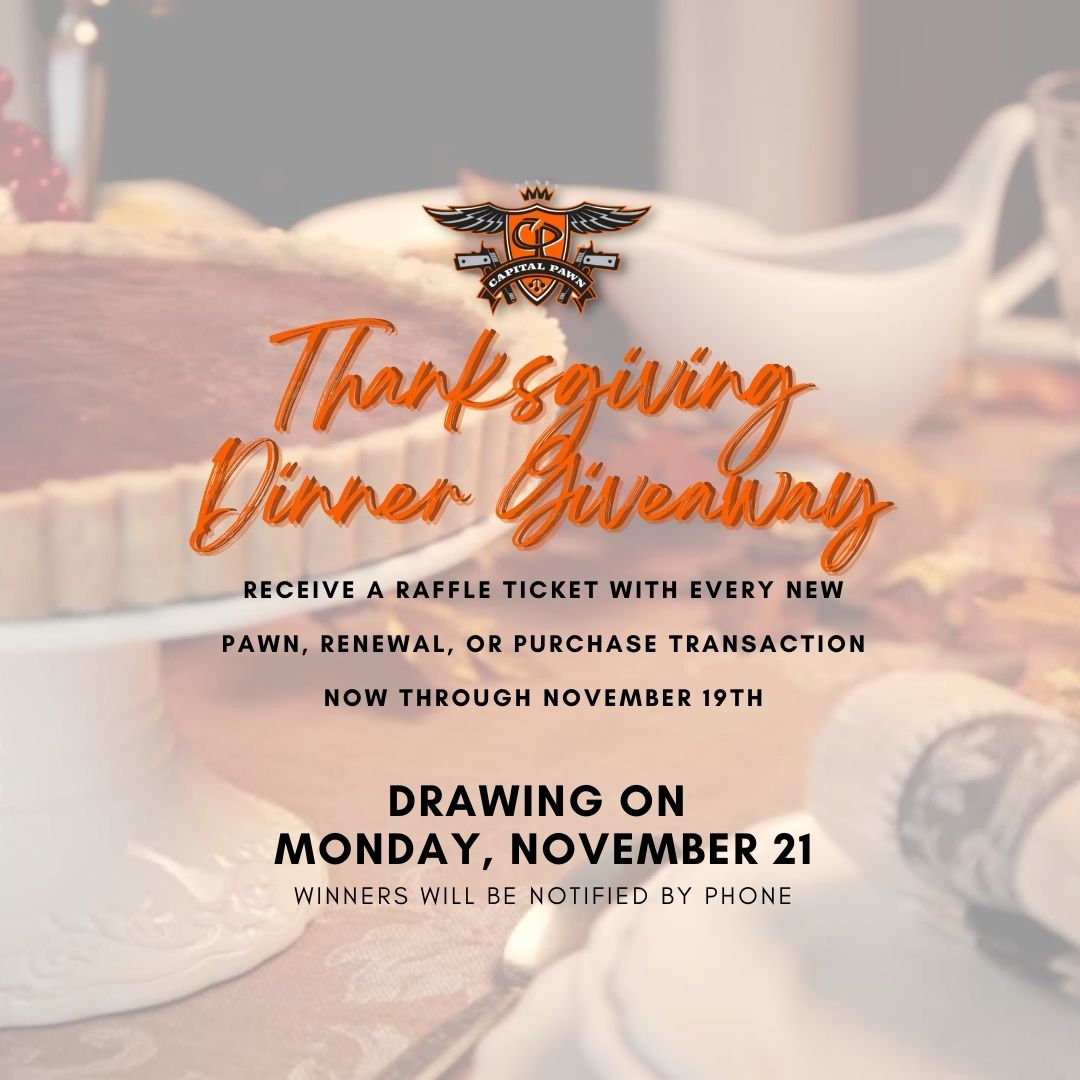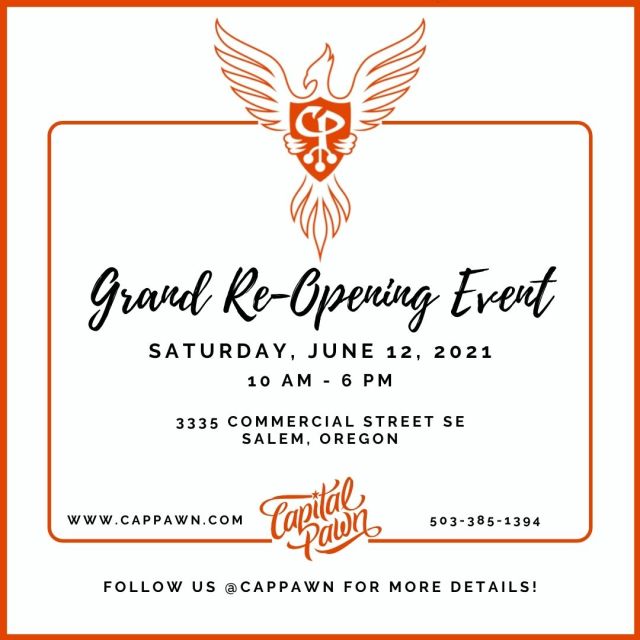I’m a pawnbroker; and the phrase “I’ve seen Pawn Stars, I know how you work” is said by what seems to be every fifth customer. There are a ton of misconceptions about pawn shops, so I’m here to clear some of those up for the public. Below I have listed some of the most common misconceptions we pawnbrokers hear on a daily basis.
The first and MOST popular fallacy is the idea that we buy and sell stolen items. I have attached a picture of an article about our store, Capital Pawn, catching a known and wanted criminal along with a comment that promotes the public’s misconception about pawn shops.

Let that sink in for a moment…. Alright. Now, let’s clarify the truth of what actually happens. According to the National Pawnbrokers Association the actual running percentage of stolen items pawn shops receive is under one tenth of one percent. This is an easy thought to misconstrue because most people don’t know what our job entails or the regulations and procedures we diligently follow. When someone comes in to pawn or sell an item, they have to present their identification and have their thumbprints added into the store’s system; they are also being recorded on that store’s security cameras, and if that is not enough, every item that pawnbrokers take in are recorded in the system with a detailed description, images, and serial numbers (if applicable) which is then transmitted to the police department nightly and the items are held for 2 weeks for verification.
Another common misconception is the items that pawn shops contain are damaged, inoperative, or even outdated. That couldn’t be further from the truth. The pawnbrokers here at Capital Pawn make sure that ALL items being brought into our inventory are in working order and fall under our specific conditions and timelines. By that I mean, with items (electronics specifically), we must make sure they are not older than a certain date; to us it’s like an expiration date and no longer holds much value and cannot benefit us or our customers by having it in our inventory. Everything is constantly being updated and revamped, and every few months a newer, better version of that item has hit the market. So it is pertinent to us pawnbrokers to reflect that said market as well as the prices that mirror it.
Many people assume that the majority of our clientele are here as a last resort. This would be our third most common misunderstanding; that the people who come to us for help are down on their luck and have nowhere else to turn, but our customers come from all different economic statuses. We offer an option that banks and credit unions simply cannot. We build and create a loan specific to you for something you put up as collateral. If that loan is not repaid in the time assigned, it does not negatively impact your credit; instead the collateral simply becomes ours.
I’ve done some serious digging and research on community forums and other discussion pages just for this one specific topic. The fourth fallacy is apparent in the following comments: How pawnbrokers “rip you off”, “take advantage of the people who come into their shop” and (my personal favorite), “buy your item for super cheap only to turn around and sell it for retail price.” When someone comes in to sell an item, they understandably want to receive as much money as they can. And it’s easy to assume that is exactly what our thought process is as well. Thus, giving us a reputation we must fight to repair. Yes, we need to make a profit because coming out even is not how you keep a business up and going. HOWEVER, it is not an insane amount of profit. When we make an offer on your item, we offer up to 50% of what we would sell it for in our store and that percentage is based on how long it will sit on our shelves. Once an item has been used ONCE, it no longer holds the same value as a brand new, still sealed version. If you pull it out of the box and look at it, remove the packaging, and plug it in, it is no longer worth what you paid for it. It is for that exact reason that people feel we ‘rip them off’ because the used market is substantially lower than what they expected it to be.
I’ve read numerous reviews of pawnshops all over the world and they all have one thing in common. Their customer experience is lacking severely. Their pawnbrokers are greedy, rude, pretentious, or condescending. They don’t care about their customers, they only care about the money, the numbers, or how your business will best benefit them (which I have already touched on). Here at Capital Pawn, we like to pride ourselves on always being fair, friendly, and willing to help out with any requests or needs. We strive to provide excellent customer service for each individual and help as much as possible. In fact, because of this we are the number one google reviewed pawn shop in ALL of Oregon.
The final mistaken belief I will cover today is the idea that the jewelry in pawn shops are from broken families, broken promises, ended marriages, or altogether spurious. Though some may be from marriages that have ended, over 80% of the jewelry sold to us are pieces that are simply unwanted or never worn. When someone brings in their jewelry, it is tested and weighed to confirm its authenticity. We use state certified testing supplies such as diamond and stone testers and a variety of acids to test different types of precious metals. Pawn shops buy sterling silver, gold, platinum, complete or broken scrap, and sometimes loose diamonds and stones.
Unlike many other selling options you may be familiar with, we more highly regulated than banks and strive to provide an excellent customer experience with a focus on loyalty, dignity, honesty, and fun.
There are a ton more misconceptions I did not mention, but if you would like to learn more or see how pawnshops can help you, stop in your local shop and see what the friendly staff can do to benefit your wants and needs.
3335 Commercial St SE, Salem, OR 97302 or 3297 Portland Rd NE, Salem, OR 97301









